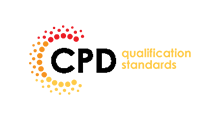What are the signs of dyslexia?
The problems displayed by individuals with dyslexia involve difficulties in acquiring and using written language. It is a myth that individuals with dyslexia “read backwards,” although spelling can look quite jumbled at times because students have trouble remembering letter symbols for sounds and forming memories for words. Other problems experienced by people with dyslexia include the following:
- Learning to speak
- Learning letters and their sounds
- Organizing written and spoken language
- Memorizing number facts
- Reading quickly enough to comprehend
- Persisting with and comprehending longer reading assignments
- Spelling
- Learning a foreign language
- Correctly doing math operations
Not all students who have difficulties with these skills have dyslexia. Formal testing of reading, language, and writing skills is the only way to confirm a diagnosis of suspected dyslexia.
When can dyslexia be identified?
Dyslexia will normally become apparent during the early years of schooling, when a child shows an unexplained difficulty in reading despite having all the skills, such as intelligence and verbal ability, which are necessary to read. Even though dyslexia can become apparent in the early year’s many children are not identified and an evaluation may not be done until adulthood.
How does an unidentified child cope with dyslexia at school?
Many unidentified children develop coping strategies both positive and negative, which can disguise dyslexia. Most children with dyslexia have to work much harder than their peers to remember and apply classroom information. Some children with dyslexia pretend to be less intelligent than they actually are; this is a negative coping strategy.
Research on early identification:
The earlier a child with dyslexia characteristics is identified the sooner that child can be directed to effective instruction for their specific need. A child identified earlier and assisted without the extra burden of the secondary effects setting in, which can include; low self-esteem, frustration, loss of motivation for learning, social and emotional issues including attention difficulties.
What can you do:
Learn about the common characteristics of dyslexia, trust your gut feelings and do something about it. Effective screening for dyslexia will tell you a lot about the type of teaching your child requires. If you feel that your child is displaying symptoms of dyslexia, do not listen if someone says, “They will grow out of it” or “All children progress at their own rate”. No one grows out of dyslexia and time is valuable when it comes to dyslexia and a child’s positive self-esteem. See “Could it be dyslexia” for common characteristics.





-
Add a note